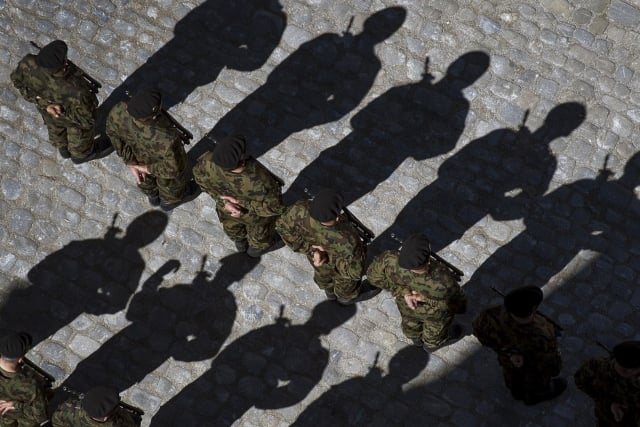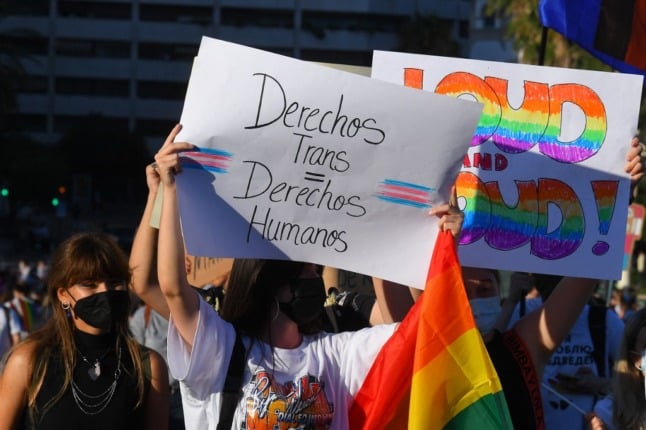A working group on diversity issues made up of recruiting staff, lawyers and army doctors is now examining the issue, according to Swiss weekly SonntagsZeitung.
Under current Swiss army regulations, transgender people are technically classified as unfit to serve.
Read also: Switzerland to lift obstacles to registering gender change
However, since a 2013 test case, transgender people are now generally admitted to the army if doctors declare they are psychologically and physically fit for duty.
The changes came about after Claudia Sabine Meier was “outed” as a transgender woman. A former hotel director, Meier had previously completed military training as a man.
But when she applied to join a peacekeeping mission in Kosovo, army doctors said her sex change operation made her unfit for duty.
However, Meier argued that the army was “neither masculine nor feminine” and was able to convince the top brass to take her on.
Introduction of test recruitment survey
Now, the army is looking at ways to open the door to other transgender recruits.
In future, recruiters want to ask possible recruits about gender identification as part of a recruitment survey. Under the plans, people would be able to choose man, woman or other.
Testing of this question had provided positive responses, researchers said.
The LGBTQ group Pink Cross and the Transgender Network Switzerland TNS) have responded relatively positively to the news. But TNS said it was a case of too little, too late.
It remains to be seen how Swiss society will react to the changes. A recent study by Zurich’s ETH technical university showed that 93 percent of people surveyed believed homosexuals should have the same opportunities in the army.
However, the same study revealed that 14 percent of people felt homosexual troops threatened troop unity.
Read also: Why same-sex marriage just got a big step closer to reality in Switzerland



 Please whitelist us to continue reading.
Please whitelist us to continue reading.
Member comments